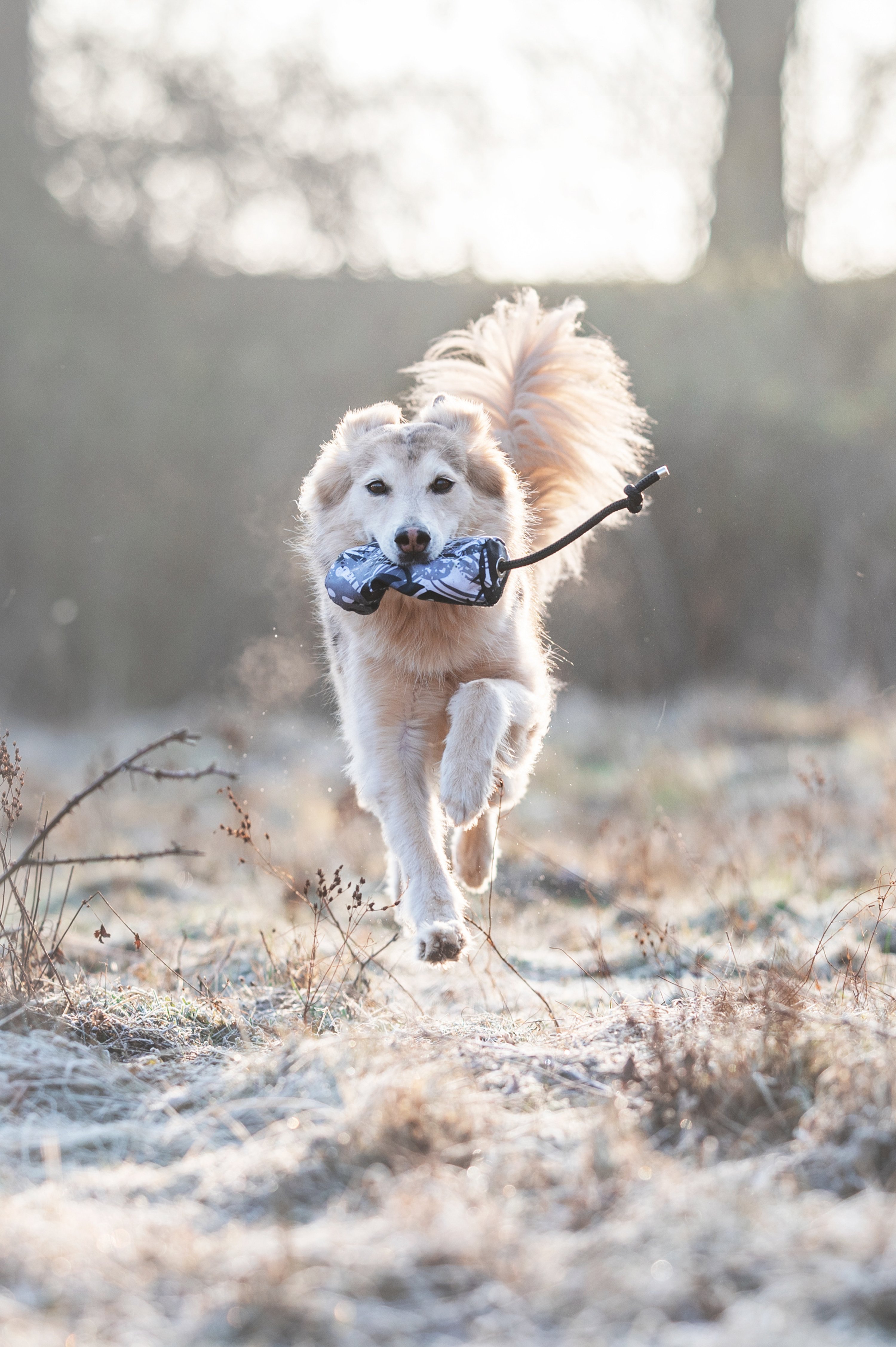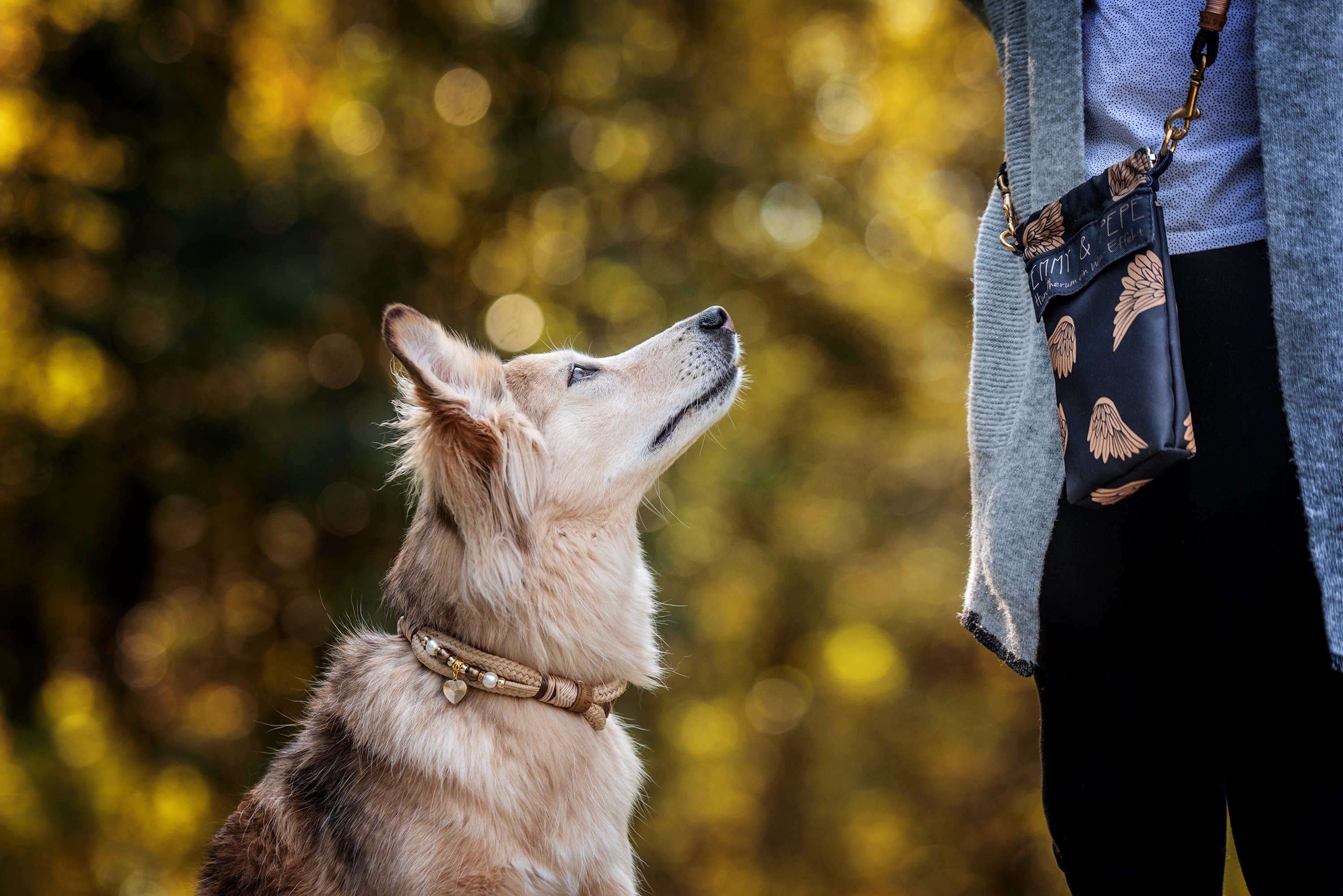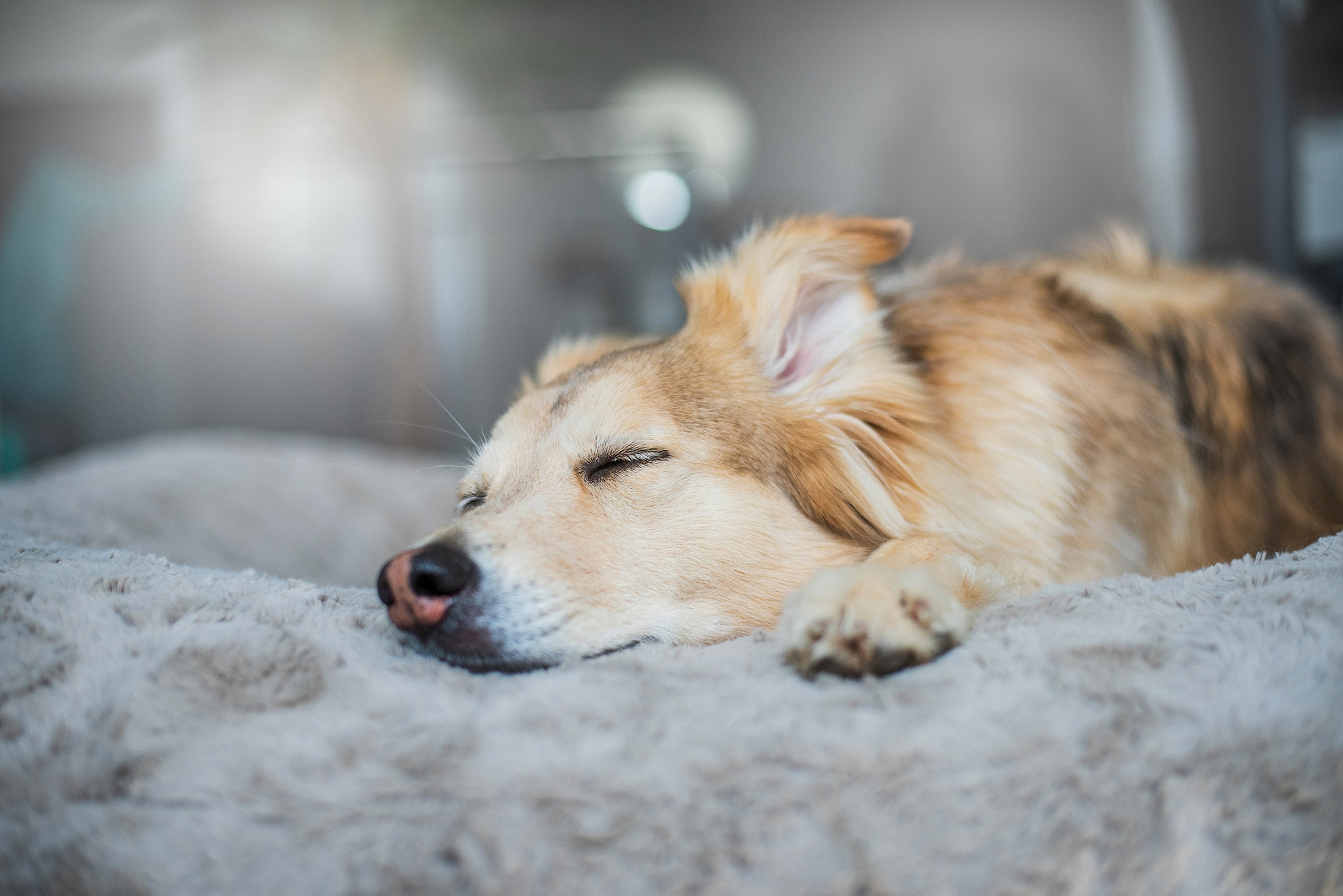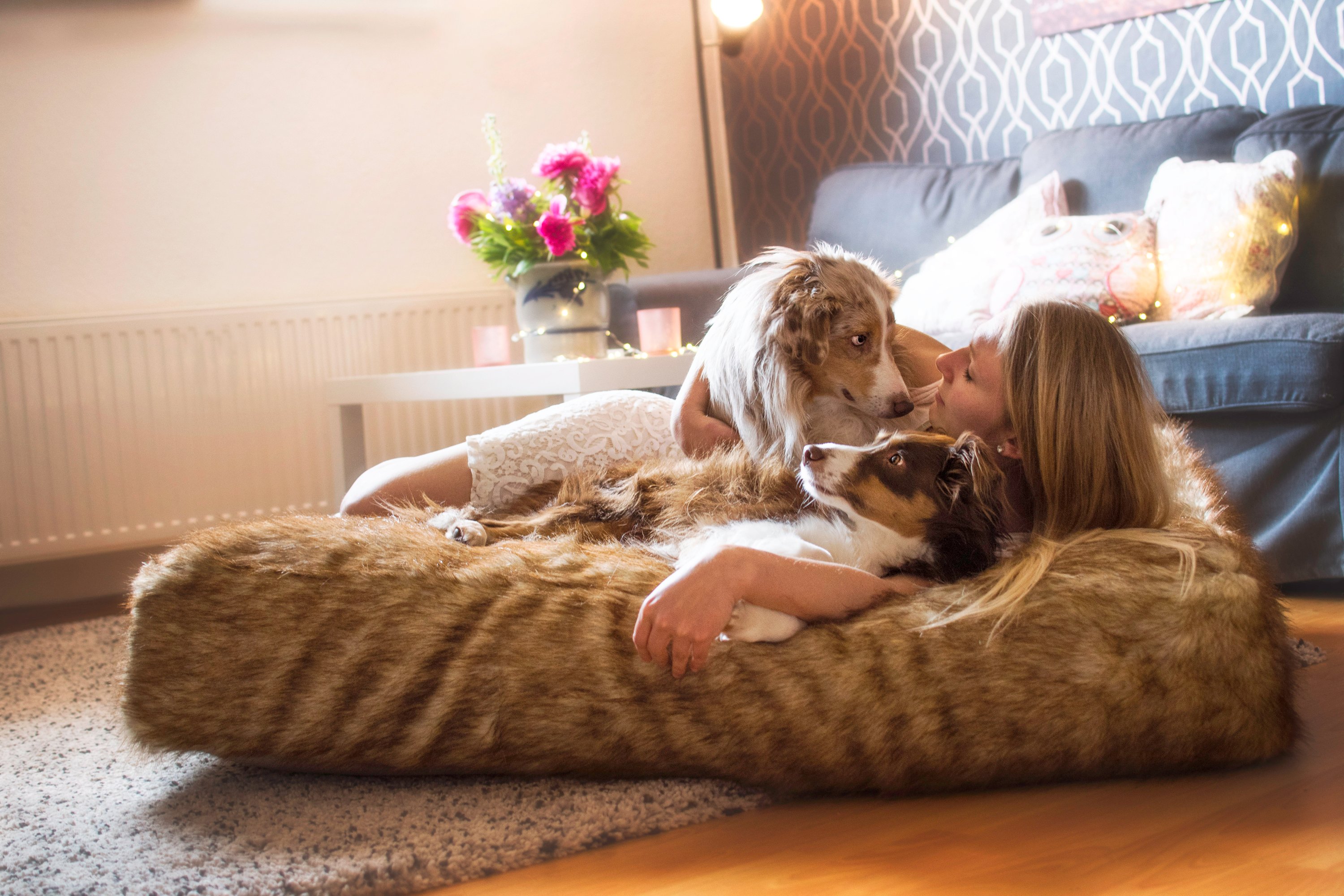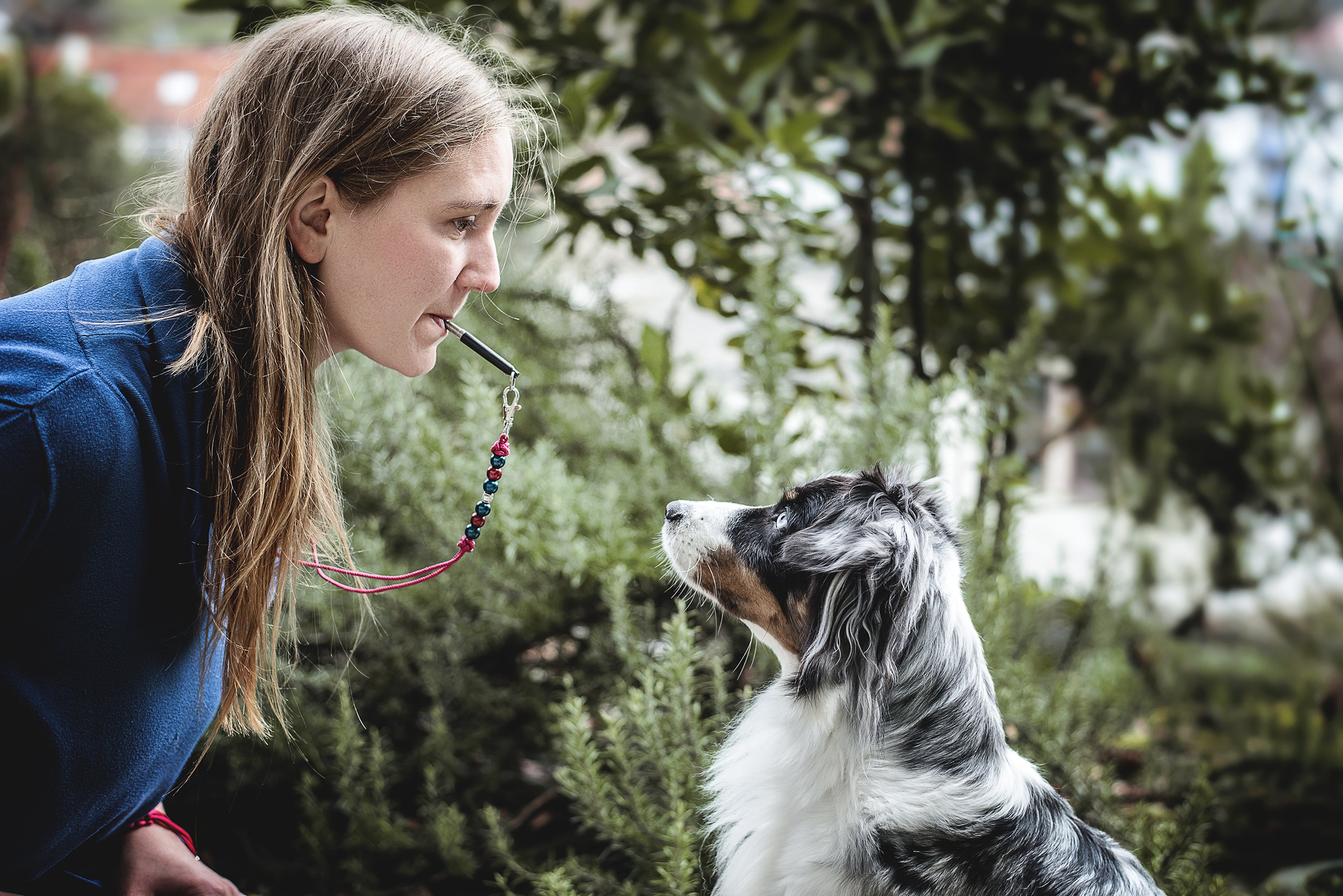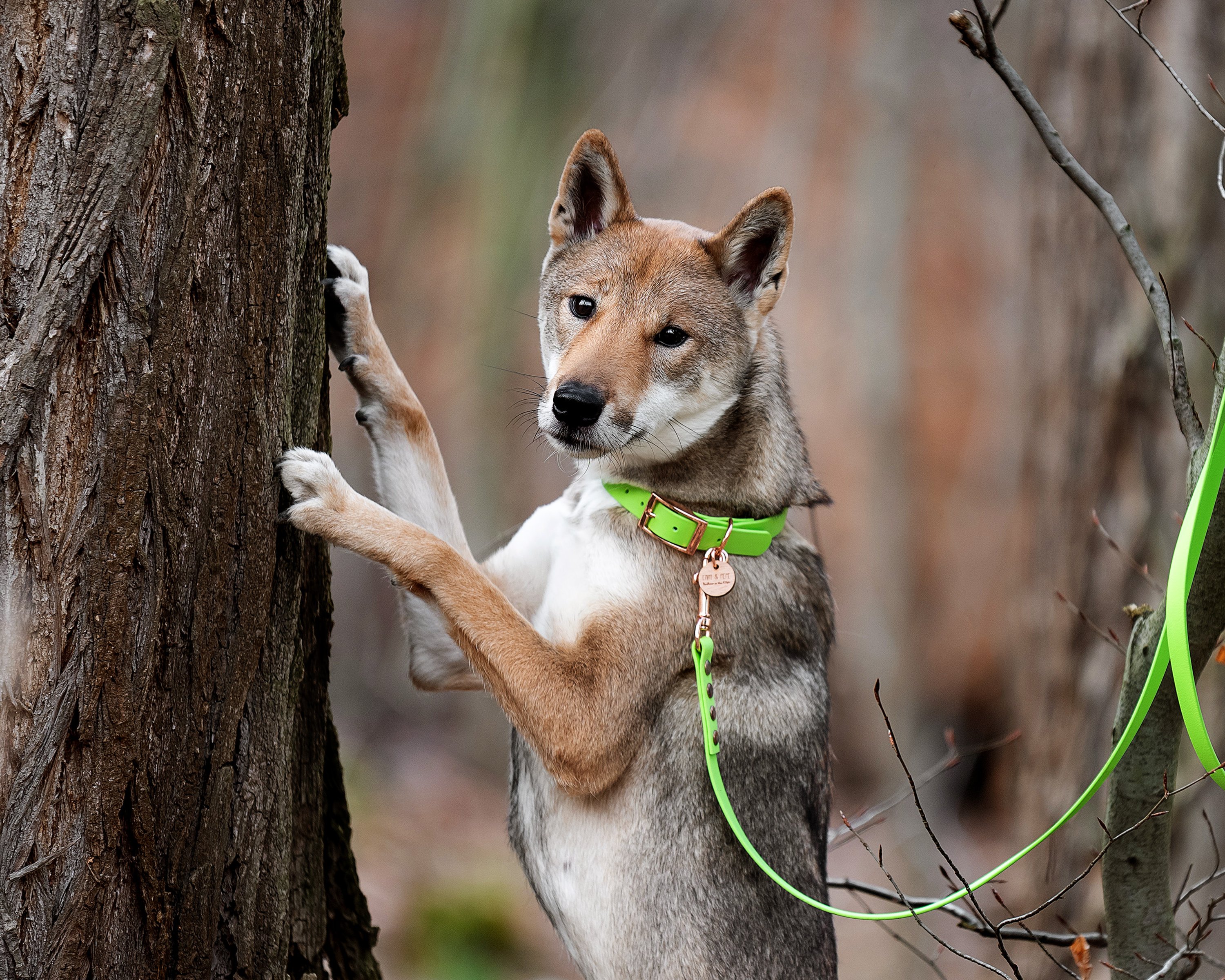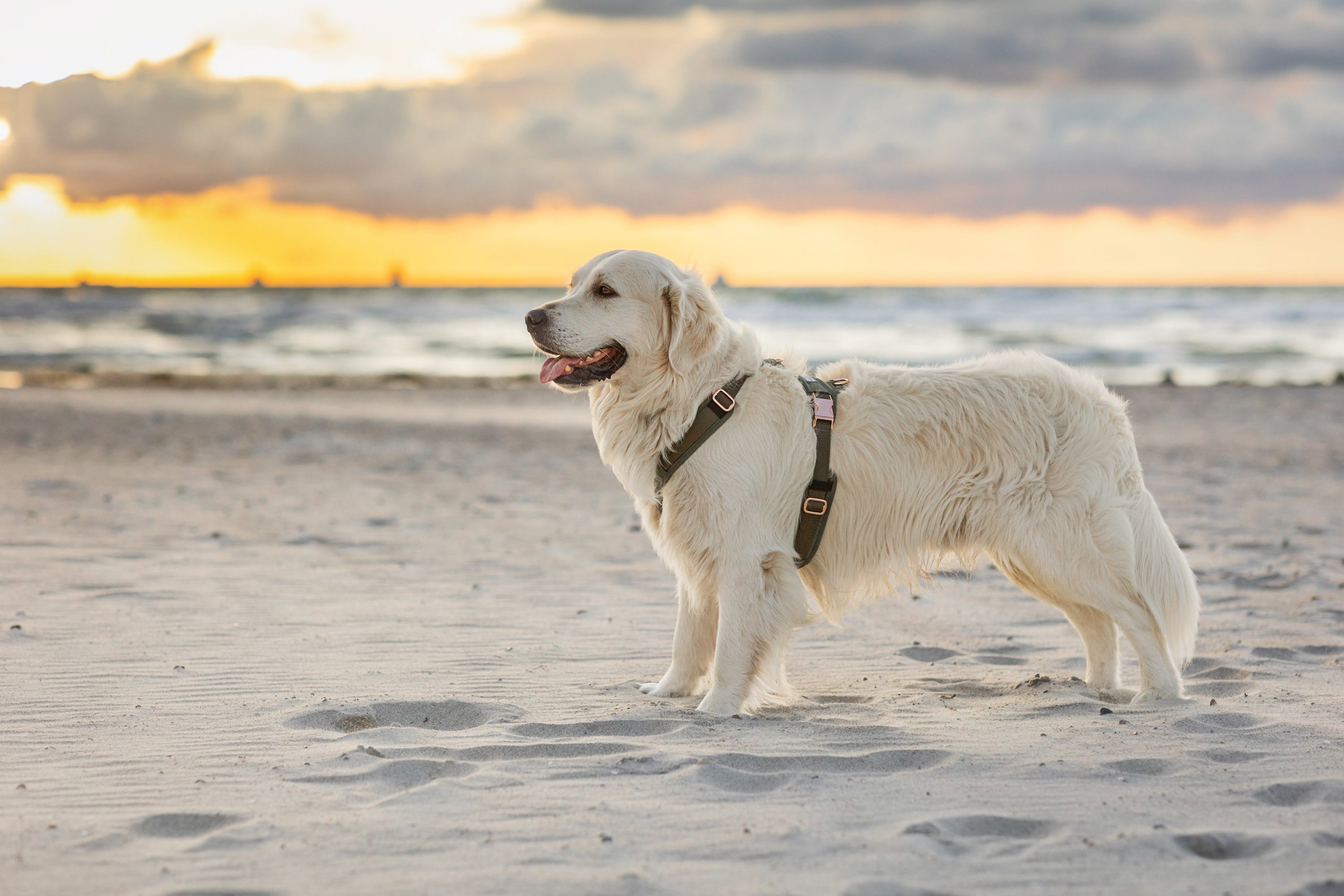
The aging dog
When the dog becomes a senior
When acquiring a dog, few owners think about how their darling will change in the course of life. At the beginning it is important to find a dog that fits your needs. However, many people do not think about the fact that the dog's behavior and needs will change in his lifetime - namely, when he becomes a senior dog.
Aging is a process that we dog owners would love to stop. We don't want to worry about how our dog will grow old. But the aging dog is a very important topic, because when the dog becomes a senior, we suddenly have to adapt to the needs of our four-legged friend. Classic symptoms of old age and behavioral changes are part of life for dogs, just as they are for us humans.
In this article, we will answer all the relevant questions about the aging dog: When the dog becomes a senior, so that you can best support your dog in all its phases of life.
How do dogs change with age?
Just like us humans, dogs can't avoid the process of aging. Unfortunately, our dogs can't talk to us, so it's especially important that you're aware of what changes await your dog as a senior.
In many ways, a dog ages very similarly to us humans: The body changes and degrades. While we humans get gray hair, the muzzles of our four-legged friends become whiter with age. In addition, it often comes to:
Wear and tear can cause the dog to have a decreased desire to move and less energy. Your dog becomes quieter and slower, and often needs more rest.
In old age, dogs are more susceptible to (chronic) diseases, as the immune system weakens and the rest of the dog's body also degrades.
Teeth wear down over time, and many dogs also suffer from tartar, gingivitis and loosening teeth.
With age, the coat and skin can also change and become, for example, more brittle or greasy. Pigment spots can also develop. Dandruff occurs more frequently due to drier skin.
Due to decreasing energy, many senior dogs tend to be overweight.
Dogs' eyes can become cloudy, field of vision is reduced, and hearing deteriorates.
Hormone fluctuations, possible illnesses or the breakdown of muscles and connective tissue can cause incontinence in a senior dog.
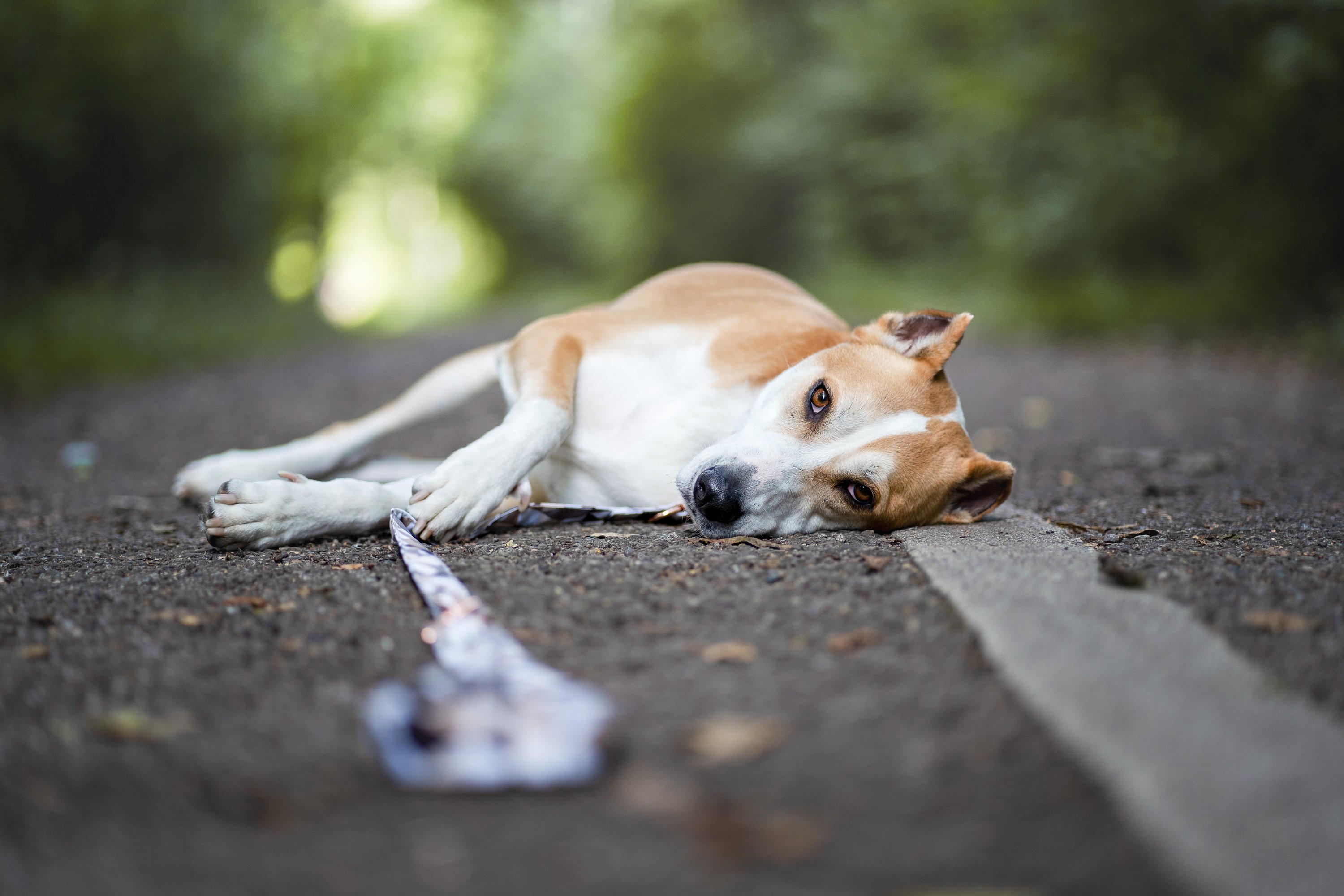

The symptoms of aging can be prevented in the most rare cases, but regular checks and conscious observation can lead to an early diagnosis. Since changes rarely appear suddenly, but usually have a gradual emergence, it helps especially to regularly consciously observe the furry friend and take note when something changes in their behavior or is conspicuous.
Has my dog changed lately? Is he drinking more or less than usual? Does he have noticeably frequent diarrhea or soft feces? Has his gait changed? How do his skin, coat and teeth look? Is my dog sleeping more than usual?
Have your four-legged friend regularly examined by a veterinarian and a dog physiotherapist. Here, dental problems or problems in the musculoskeletal system can be detected and treated in time.
It is also advisable to have your dog undergo a so-called geriatric profile every year. This is basically a large blood count, in which all relevant organ values are checked. If, for example, the function of the liver has decreased with age, this can be remedied with tablets if necessary.
Be a support for your dog. If possible, take care of your dog's teeth regularly, for example, and prevent some problems. Of course, this is not the only factor in dental health; involuntary factors such as individual saliva composition can also influence it.
With the help of a trained dog physiotherapist and/or dog osteopath, determine if your dog already has limitations in the musculoskeletal system and have them show you exercises that you can perform in everyday life with your dog. Physiotherapy and osteopathy help to improve, maintain and strengthen your dog's mobility.
When your dog becomes a senior, you should switch to senior food in time. This contains more fiber and less fat. Especially when the aging dog becomes less active, so senior food is recommended.
Supplementary food can be supportive for the dog in many areas. For example, brewer's yeast flakes help with dry and flaky skin. Here, however, it is also recommended to consult a trained nutritionist for dogs.
The body of an aging dog changes. This change usually leads to a change in behavior as well, as the dog adapts to its new circumstances.
The loss of hearing or sight unsettles many dogs. As a result, they often become more affectionate, because where they used to be able to simply hear whether their owner has left the house or just the room, they are often no longer able to do so in old age. Consequently, they now get up more often and follow their owner wherever they go.
Tip: This is where a resting place and trained laying down can help keep your dog feeling safe. Also, not moving around too much in your apartment and house can help avoid confusion of a dog with poor sight.
This insecurity can also lead to the return of old problems. For example, my male dog had big problems with staying alone when he was young. After much training, this was no longer a big issue with us for many years. However, at fifteen the problem is present again.
Many old dogs, like older people, experience a shift in their sleep-wake rhythm. Perhaps you have asked yourself: Why is my old dog so restless at night? It may be because your dog experiences too much stress during the day and can't get proper rest. The stress causes hormones like adrenaline to be released, which causes your dog to not be able to sleep at night. Since old dogs can also experience stress due to their changed circumstances, you should take special care to minimize such stressors as well.
Old dogs need more rest. This means that a senior sleeps more, and can often seem lethargic. They are also slower on walks than they used to be, or need an extra invitation to even leave their beloved sleeping spot.
Many dogs express behavioral changes in the form of stubbornness or forgetfulness. For example, your dog may forget to drink or eat regularly. Especially with regard to food, rituals help, such as feeding after or during each walk.
You've probably heard the saying "You can't teach an old dog new tricks". However, this is not entirely true. As dogs age, their ability to learn diminishes, but it is not impossible to teach an old dog new things.
You may have already wondered how to simplify your dog's daily life and best adapt to his new needs.
What are good aging and daily living aids for a senior dog?
A number of tools can make your dog's everyday life, and therefore your own everyday life, a lot easier.
An orthopedic dog bed protects the joints and bones of your dog and ensures a joint-relieving sleep. Our dog beds from EMMY & PEPE, with an orthopedic two-chamber system are made for it!
With elevated food and water bowls, your dog will also be easier on his joints and muscles.
Many dogs who suffer from incontinence feel more comfortable wearing a diaper. Incontinence mats ensure that you do not have to change your dog's sleeping place every day.
Since aging dogs freeze faster, a dog coat can help keep your four-legged friend more comfortable in low temperatures. Also after a walk in the water or a rain shower, many senior dogs start to freeze quickly. That's where the EMMY & PEPE dog bathrobe or our bamboo fiber towels can be a good support!
Cooling mats are easy on the cardiovascular system when temperatures are high. Air conditioning in the apartment would of course be a luxury for a senior citizen. However, care must also be taken here that the dog is not in the draft. Due to his weaker immune system, the risk is higher that he gets sick from the draft.
As joints weaken and muscles break down, many dogs have trouble walking over slippery floors as they age. Dog socks or shoes can provide relief. Alternatively, carpets or non-slip bath mats can help your four-legged friend.
A GPS tracker can be beneficial not only for a dog with dementia. It also provides security for owners of dogs with poor vision and hearing.
A vibration collar allows communication to a blind dog.
If you used to enjoy biking with your dog and don't want to give that up as your dog ages, bike trailers or baskets are recommended to take it easy on your dog.
In addition, a dog stroller provides improved mobility. This way you can walk long distances with your dog and explore new areas with him, but at the same time not overexert him and offer him regular rest breaks without having to stop yourself.
To save your dog's joints, a boarding aid for the car, sofa or even bed can be a great support.
Literature recommendation
Strodtbeck, Sophie und Bernd Schröder. Der alternde Hund. Stuttgart, 2021.
